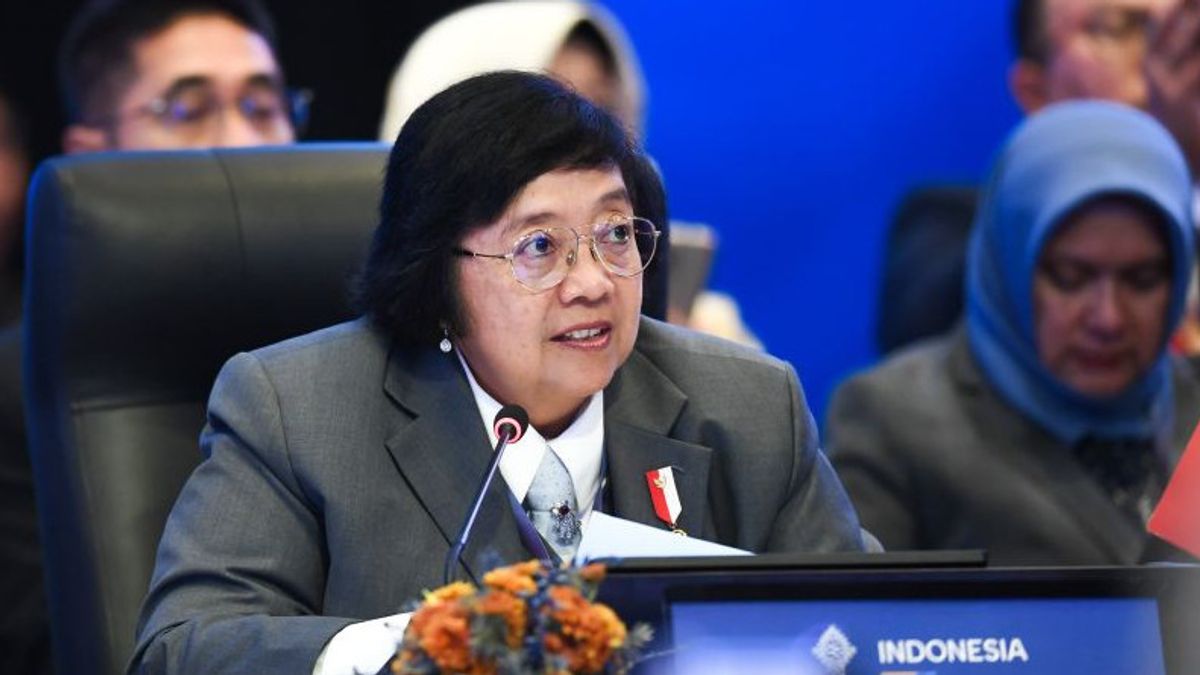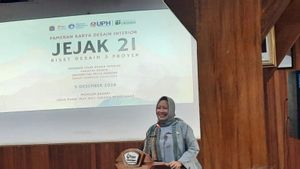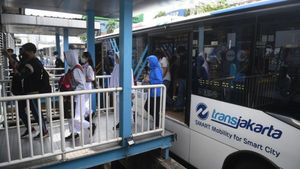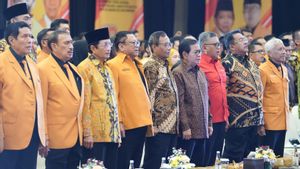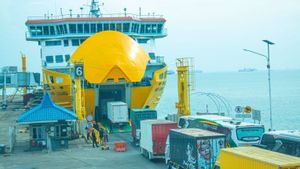NUSA Dua - The Indonesian government through the Minister of Environment and Forestry Siti Nurbaya Bakar invited delegates who were present at the Island and Islands Countries Summit or the AIS Summit to jointly overcome climate change.
The invitation was conveyed at the Forest Power for Climate Action Workshop event entitled "Forest Management Innovation and Policy in Mitigating Climate Changein Indonesia" in Nusa Dua, Badung, Bali, on October 10.
"Climate change is not only a global challenge that knows no national boundaries, but is also an issue that requires a solution that needs to be coordinated at the international level to help developing countries towards a low-carbon economy," he said, Tuesday, October 10.
Minister Siti explained Indonesia's experience in controlling climate change through innovation and sustainable forest management policies that have been recognized as successful by the international community.
According to him, the Indonesian government has received world recognition for its success in reducing greenhouse gas emissions from Emission Reduction from Forest Deforestation and Degradation (REDD+) in the 2014-2016 period of 20.25 million tons equivalent to carbon dioxide.
Indonesia has also received a Result Based Payment of 103.8 million US dollars.
This achievement has shown Indonesia's ambitious response to the threat of climate change, as well as an increase in confidence in the country and from the international community.
According to Siti, AIS members must further strengthen ambition and continue to create collaboration, as well as new initiatives in order to overcome climate change in line with efforts to encourage low-carbon economic development, especially through the forestry sector.
Baca juga:
Indonesia through the forestry sector has set a carbon-free target by 2030 through the Indonesia's FOLU Net Sink 2030 program which was built on corrections to policies and steps in the forestry sector for no less than seven years.
Corrective measures to improve forest management are developed and implemented through strengthening policies, more organized programs, and better work processes, including monitoring and verification systems for outcomes, results, and the impact of these correctional measures.
A significant effort to reduce emissions from the FOLU sector in Indonesia is expected to contribute 60 percent of the national emission reduction target listed in ENDC Indonesia.
The English, Chinese, Japanese, Arabic, and French versions are automatically generated by the AI. So there may still be inaccuracies in translating, please always see Indonesian as our main language. (system supported by DigitalSiber.id)
